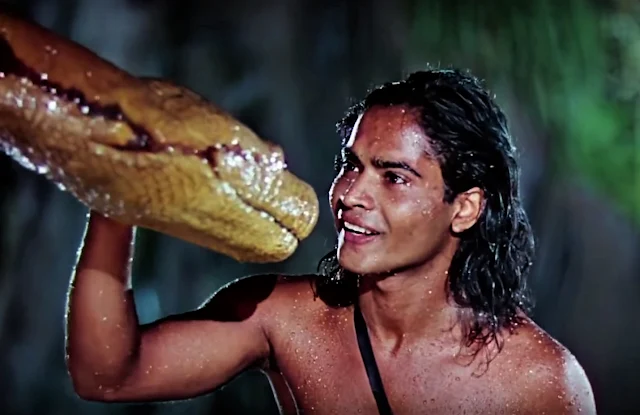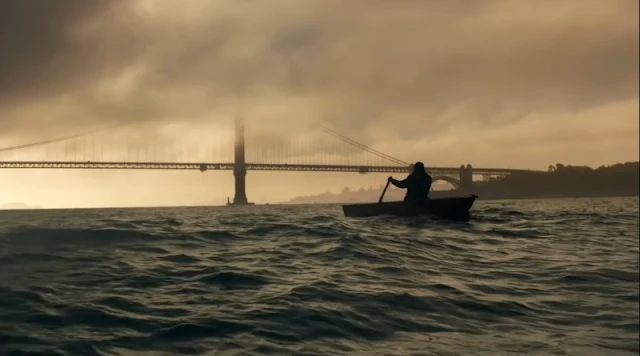 |
| Willem Dafoe in At Eternity's Gate |
Julian Schnabel's At Eternity's Gate is less a dramatic biopic than a series of conversations about art and madness centered on the figure of Vincent van Gogh. Willem Dafoe got yet another well-deserved Oscar nomination for playing van Gogh as a man who walks the line between genius and psychosis. Schnabel's contribution to this familiar story is to introduce a recent theory that van Gogh's death was not a suicide but instead a mishap, the result of a random gunshot when the artist was being harassed by a couple of young hoodlums. Van Gogh, in this theory, claimed he shot himself perhaps to protect the perpetrators but also as a kind of acknowledgement that he had reached a terminal point in his life. But what matters most in the film is art, explored in conversations between Vincent and his brother, Theo (Rupert Friend), his fellow artist Paul Gauguin (Oscar Isaac), and near the end of the film with a priest, played by Mads Mikkelsen. It's an often fascinating film in its re-creation of 19th-century Paris, Arles, and Auvers-sur-Oise, and its deft matching of scenery and people with the corresponding places and faces familiar to us from van Gogh's paintings. To my mind, cinematographer Benoît Delhomme overuses the hand-held camera to the point of inducing a kind of nausea, but perhaps the intent was to suggest the instability that van Gogh tried to turn into fixity by painting it.








